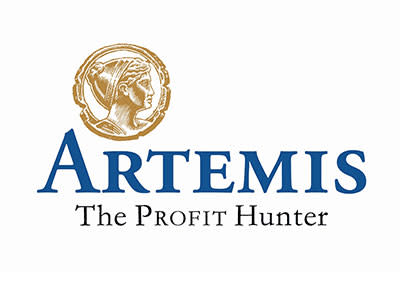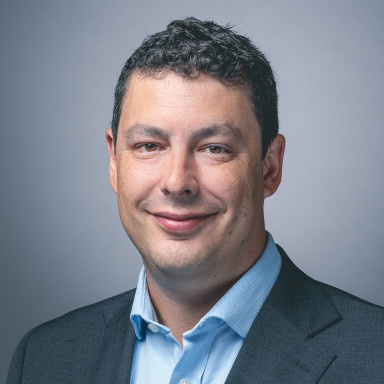Stephen Snowden is a seasoned corporate bond investor and has over 20 years' experience
We like the manager's clear, disciplined investment process which we think could drive returns over the long term
Snowden has delivered strong returns for investors over the long term, outperforming the corporate bond peer group
This fund features on our Wealth Shortlist of funds chosen by our analysts for their long-term performance potential
How it fits into a portfolio
The fund aims to generate a combination of income and growth over the long-term and could form part of a diversified bond portfolio or diversify an equity-focused portfolio. We think the fund is a good choice as part of a portfolio that has a long term view but could be more volatile than other bond funds.
Manager
Stephen Snowden has been the manager of the fund since joining Artemis to launch it in October 2019. He's a seasoned corporate bond investor though, having accumulated over 20 years' experience running similar strategies at Old Mutual and Kames. This means Snowden has navigated the corporate bond market through a range of economic conditions. We believe making use of this experience leaves him well positioned to continue his success at Artemis and our conviction lies with him. Snowden became Head of Fixed Income at Artemis in 2021 and leads a team of bond investors mostly based in Edinburgh.
Snowden has the support of co-manager Grace Le who also moved across to Artemis from Kames in December 2019 where she co-managed some bond funds.
Process
The fund's investment process blends 'top down' macro-economic research with 'bottom up' fundamental analysis of individual companies' bonds. The macro analysis involves building up a picture of where countries are in the economic cycle as well as considering the implications of monetary and fiscal policy for key indicators like inflation and interest rates. This helps Snowden evaluate which sectors and areas of the economy could benefit from any trends or shifts that might be occurring.
This macro-economic research is combined with 'bottom up' analysis of bond-issuing companies. This helps Snowden determine which bonds are attractively priced and offer the most compelling opportunities to generate returns. Snowden also spends time meeting company management to assess both their quality and their strategy for the business. It's important for him to dig deeper into the company strategy to understand what they're trying to achieve, its implications and to ensure that it isn't likely to disadvantage bondholders.
At least 80% of the fund is invested in investment grade bonds (those with a credit rating of BBB or above) that are issued in sterling or hedged back to sterling from other currencies, like the Euro or the Dollar. The fund also has the flexibility to invest in derivatives and high yield bonds which adds risk. Snowden diversifies the fund by owning bonds issued by a range of different companies. There are currently around 120 bonds in the fund, but this number can be anywhere between 75 and 150 at any one time. Some of these bonds may be more illiquid than others, which could make them more difficult to sell.
Snowden is often active in changing specific bonds held in the fund and the last few months have been no different. In March for example, he invested in ten newly issued bonds in the market. Some of the issuers were Virgin Money, Southern Water, Nestle and Telereal. To free up space in the fund for these new issues, he’s sold some bonds following strong performance, locking in profits for investors.
At a sector level, the fund’s largest exposures are to banks, utilities and insurance. The duration of the fund is similar to the fund’s benchmark at the end of March at 6.3 years. Duration is a measure of the sensitivity of a bond‘s price to a change in interest rates and is measured in years. In general, the higher the level of duration, the more sensitive the fund is to interest rate changes.
Culture
Snowden is a partner at Artemis, and Artemis is a private company. We think this structure is a good thing for investors, as both manager and firm are focused on the long term and can run funds without the distraction of short-term shareholder demands. Fund managers at Artemis are required to invest their own money into their funds, and this means they succeed when their investors do. Artemis also provides an attractive environment for fund managers, allowing them the freedom to run money how they see fit without imposing a 'house view' on them.
ESG integration
Snowden believes environmental, social and governance (ESG) considerations have become issues investors and companies can't ignore. And that in the future, companies that encounter issues and perform poorly in these areas are likely to be viewed negatively by more and more investors and as such, have the potential to be value traps – investments that are cheap for a reason. That said, this is not an ESG labelled fund and the risk-return profile of the bonds Snowdon invests in remains the most important thing.
Investment teams at Artemis are encouraged to think for themselves and invest according to their own style, so the quality of ESG integration across the firm varies. Artemis does have a firm-wide policy to support the aims of international conventions on cluster munitions and anti-personnel mines and therefore the firm will not knowingly invest in companies which produce these weapons.
Artemis votes on all their holdings, unless restricted from doing so, and fund managers engage with firms to develop their understanding, raise issues with management and monitor subsequent developments. The firm provides engagement case studies, and other information about its engagement and voting efforts, in an annual Stewardship report. Artemis produces a monthly voting summary, and these summaries include rationales for some of the more controversial votes. Engagement case studies can be found in the firm’s annual Stewardship Report.
Cost
The fund has an annual ongoing charge of 0.37%, but through Hargreaves Lansdown you can secure an ongoing saving of 0.05%. This means you’ll pay a net ongoing charge of 0.32%. The fund discount is achieved through a loyalty bonus, which could be subject to tax if held outside of an ISA or SIPP. The HL platform fee of up to 0.45% per year also applies, except in the HL Junior ISA, where no platform fee applies.
Please note the fund takes charges from capital, which could boost the income paid, but reduce the potential for capital growth.
Performance
Snowden has delivered strong performance over the long term, outperforming the wider corporate bond peer group average. Like all fund managers though, he's had weaker periods too. He endured a tough time during the financial crisis, for instance, but bounced back reasonably well after. Please remember past performance is not a guide to future returns.
Since moving from Kames to Artemis in October 2019 and launching this fund, Snowden has performed strongly. In the initial months when coronavirus hit, the fund's positions in higher quality bonds and a rotation away from bonds issued by companies more exposed to the effects of Covid-19 helped relative performance. Snowden also managed to pick up bonds at attractive valuations during the market turmoil which went on to perform well. This led to the fund outperforming the IA £ Corporate Bond peer group significantly in 2020, returning 14.49% versus 7.75%. The level of outperformance achieved during 2020 is unusual and is outside our expectations for this fund.
Since then, the fund has returned to a performance profile that is more in-line with our expectations. Over the last 12 months, the fund has delivered a return of 6.69%*, rising by more than the IA £ Corporate Bond peer group average which returned 5.42%. While the fund has seen some ups and downs over the year, the wider bond market rally towards the end of 2023 helped performance overall. This was due to expectations of interest rate cuts in early 2024. As these cuts haven’t happened, bonds have typically lost a bit of value in 2024 to the end of April.
Holdings in financials, real estate and housing associations have all added value for the fund. These gains were partly offset by returns achieved from the telecommunications and technology sectors, which were not as strong as the rest of the fund.
Snowden is a seasoned corporate bond investor with over two decades of experience. His performance navigating bond markets over this time is the reason for our conviction.
At the end of March, the fund offered a distribution yield of 5.19%, although yields are variable and aren’t a reliable indicator of future income.
Annual percentage growth
Apr 2019 – Apr 2020 | Apr 2020 – Apr 2021 | Apr 2021 – Apr 2022 | Apr 2022 – Apr 2023 | Apr 2023 – Apr 2024 | |
|---|---|---|---|---|---|
Artemis Corporate Bond | N/A** | 9.38% | -6.51% | -6.12% | 6.69% |
IA £ Corporate Bond | 5.29% | 4.93% | -7.37% | -6.89% | 5.42% |


